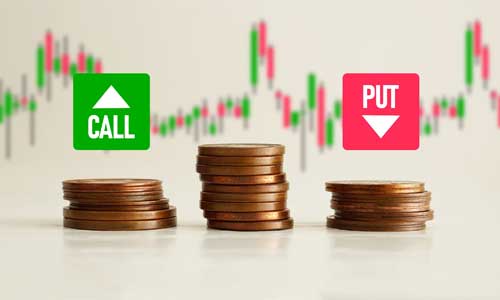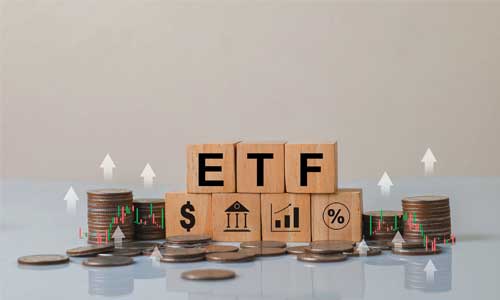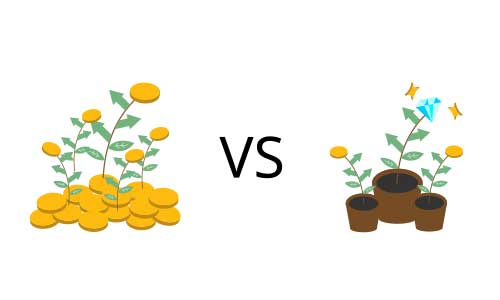Difference Between CFD and Stock: Which Investment is Right for You?
If you’re exploring investment options in the UAE, you are likely to have come across CFD trading vs stocks. Both are popular, but they work quite differently. Stocks give you ownership in a company, while CFDs (contracts for difference) allow you to speculate on price movements without owning the ...read more
What is CFD Trading?
A Contract for Difference (CFD) is not ownership of a stock, but rather a contract between you and a broker. You simply speculate on whether the price of an asset (like stocks, indices, forex, or commodities) will rise or fall.
How Do You Earn with CFDs?
- If you predict correctly (buy when the price rises or sell when the price falls), you profit from the difference
- If you’re wrong, you incur a loss
Example: You enter (buy) a CFD on Tesla stock at $200. If the price goes up to $220 and you close your contract, you earn the $20 difference. But if the price drops to $180, you lose $20.
Key Features of CFDs
- Leverage: Trade larger positions with smaller capital
- Flexibility: You can go long (buy) or short (sell)
- Speculation: No ownership, no dividends
Best Investment Plans in UAE
Some of the best Investment quotes in UAE & Dubai are:





What is Stock Trading?
When you buy a stock, you purchase part-ownership in a company. Your returns come from two sources: rising share prices and dividends (if declared). If the company grows, your investment grows too.
How Do You Earn With Stocks?
- Capital Appreciation: If the share price increases over time
- Dividends: Some companies distribute part of their profits to shareholders
- Voting Rights: In certain cases, you get a say in company decisions
Example: If you buy shares of Emirates NBD and its value rises from AED 100 to AED 120, you make a 20% gain on your investment. If the company declares a dividend, you also receive additional income.
Key Features of Stocks
- Long-term growth potential
- Best for wealth-building and stability
- Lower risk compared to leveraged products
Stocks are preferred by long-term investors looking for steady growth, dividends, and lower risk compared to leveraged products.
CFD Trading vs Stocks: Difference at a Glance
Here is the key difference between CFD and equity: stocks = ownership, CFDs = speculation. Let’s build on that and understand further differences in more detail —
|
Feature |
Stocks |
CFDs |
|---|---|---|
|
Ownership |
Yes – you actually own company shares |
No – only speculate on price movements |
|
Leverage |
Rare, usually full payment required |
Common – trade larger with smaller capital |
|
Capital Needed |
Higher – must pay full share price upfront |
Lower – margin deposit required |
|
Dividends |
Earn directly if the company pays |
Reflected as cash adjustments, not ownership income |
|
Trading Style |
Best for long-term investing |
Suited for short-term, speculative trading |
|
Risk |
Lower, tied to company and market performance |
Higher, due to leverage and volatility |
Advantages and Disadvantages of Stocks
|
✅ Advantages |
❌ Disadvantages |
|---|---|
|
Long-Term Growth & Stability — Suitable for investors with a long-term horizon Blue-chip companies (e.g., Apple, Microsoft, Reliance) offer stability, growth, and dividends |
High Capital Requirement — You need to pay the full price upfront. Example: 100 Tesla shares at $250 = $25,000 cash |
|
Ownership & Shareholder Rights — Buying stocks means owning part of the company with voting rights at AGMs and corporate influence |
Limited to ‘Going Long’ – Profits mainly when stock prices rise Short selling is possible but complex and costly |
|
Dividends as Passive Income — Many companies pay dividends, which can be reinvested for compounding |
Market Volatility – Prices fluctuate due to macroeconomic factors, earnings, and sentiment Trying to ‘time the market’ is risky |
|
Lower Fees Compared to CFDs — Generally fewer costs (brokerage, custody, stamp duty) with no overnight funding charges |
Capital Gains Tax (CGT) – Profits are often taxable in many countries, reducing overall returns |
Advantages and Disadvantages of CFDs
|
✅ Advantages |
❌ Disadvantages |
|---|---|
|
Leverage Trading — Trade with a small margin for larger exposure |
High Risk from Leverage — Losses are amplified just like gains You may lose more than your margin or invested amount |
|
Go Long or Short — Ability to profit from both rising and falling markets |
Volatility & Monitoring – Requires constant tracking Margin calls and stop-loss triggers are common |
|
Lower Capital Outlay — Margin-based trading means smaller amounts of money can control larger trades |
Higher Fees & Costs – Includes overnight funding charges, spreads, and commissions — unsuitable for long-term holding |
|
Access to Multiple Markets — Trade across shares, indices, forex, commodities, and crypto in one account |
No Ownership or Dividends – No shareholder rights Dividend adjustments are made to your account but not paid directly |
|
If you find the stock trading complex, you can also consider mutual funds and SIPs with Policybazaar.ae. These options present a beginner-friendly way to invest with professional management. |
|---|
CFD Trading vs Stocks: Which One Should You Choose?
The choice completely depends on your goals —
- Choose Stocks if…
You want to take fewer chances, earn dividends, and gradually increase your wealth. Long-term investors who are saving for retirement, schooling, or future financial security find this option excellent.
- Choose CFDs if…
You are comfortable with high risk, want short-term opportunities, and can actively monitor the market. This option is best for experienced traders with strong risk management skills.
In Simple Words
- Stocks = Ownership, stability, growth
- CFDs = Speculation, flexibility, higher risk
Important: Stocks and CFDs are not the only routes to invest in the stock market. You can, for instance, invest in mutual funds in UAE. You can even find life policies like ULIPs that bring market-linked returns.
What About the Risks in Terms of CFD Trading vs Stocks?
Both CFDs and stocks carry risks, but the nature of those risks differs.
- CFDs: The biggest risk is leverage. While it can multiply profits, it can also magnify losses. Additionally, overnight fees may apply if positions remain open for extended periods.
- Stocks: Stock trading involves risks like market volatility and company underperformance. However, since stocks don’t use leverage, the risk profile is generally lower compared to CFDs.
How Does Policybazaar.ae Help You Invest Smarter?
If you are not ready yet to take risks in stocks, you can explore other smarter and more affordable investment options in UAE. Here’s how we can help you —
- Side-by-side comparisons: You can compare investment and protection plans (stocks, mutual funds, term insurance, and more) in one place. This way, you get to see fees, features, and risk clearly.
- Curated advice: The platform brings options suited to your goal (growth, safety, retirement), helping you narrow down what's right.
- Transparency on costs and risks: Policybazaar.ae shows you what you’ll pay in fees and what trade-offs exist. This saves you from unpleasant surprises later.
- Digital onboarding and tools: Get instant quotes, apply online, track your portfolio, and adjust as needed without unnecessary delays.
- Ongoing support: Updates and alerts (e.g. when market conditions change) help you stay informed and adapt your strategy over time.
Final Thoughts
The difference between CFD and stock trading comes down to one question: Do you want ownership for the long run, or flexibility for short-term gains?
- Stocks give you a stake in real businesses and stability
- CFDs give you agility and leverage, but at higher risk
By understanding the CFD and stock difference, you can match your investment choice with your financial goals — whether that’s steady wealth creation or quick market opportunities.
Frequently Asked Questions
Is a CFD a stock?
No. A CFD (Contract for Difference) is a contract to speculate on price movements of a stock or asset. While you can earn money through it, you don’t actually own the shares.
What are the costs of trading CFDs?
CFD costs usually include the spread (buy/sell difference), commissions, and overnight financing fees for leveraged positions.
Can you receive dividends with CFDs?
You don’t get dividends with this option. But if you hold a long CFD before the ex-dividend date, you may get an equivalent cash adjustment.
Does a CFD go down if the stock rises?
No. CFDs mirror the stock’s price direction. If you go long, you profit when prices rise. However, if you go short, you profit when they fall.
What is the difference between share CFDs and investing?
Share CFDs let you speculate on price moves (up or down) without ownership. Investing, meanwhile, means buying actual shares and holding them for growth or dividends.
Can you trade shares without using CFDs?
Yes. You can buy shares directly through brokers or platforms. This gives you ownership, dividends, and voting rights, unlike CFDs.
More From Investment
- Recent Articles
- Popular Articles

























